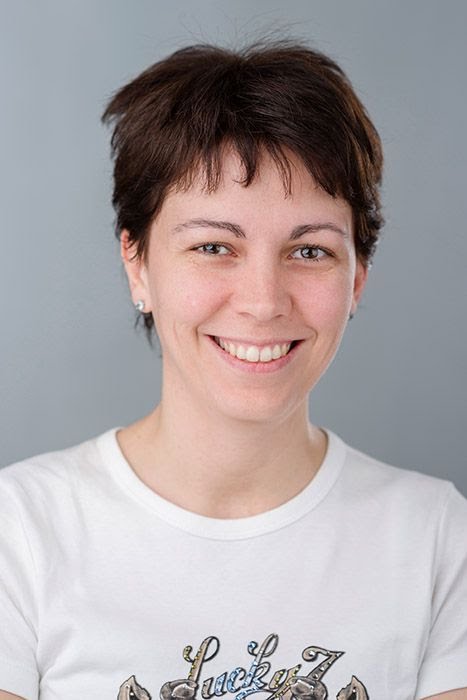Studying at the University of Verona
Here you can find information on the organisational aspects of the Programme, lecture timetables, learning activities and useful contact details for your time at the University, from enrolment to graduation.
Academic calendar
The academic calendar shows the deadlines and scheduled events that are relevant to students, teaching and technical-administrative staff of the University. Public holidays and University closures are also indicated. The academic year normally begins on 1 October each year and ends on 30 September of the following year.
Course calendar
The Academic Calendar sets out the degree programme lecture and exam timetables, as well as the relevant university closure dates..
| Period | From | To |
|---|---|---|
| First semester bachelor degree | Sep 16, 2019 | Jan 10, 2020 |
| Second semester bachelor degree | Feb 17, 2020 | Jun 5, 2020 |
| Session | From | To |
|---|---|---|
| First semester intermediate tests | Nov 4, 2019 | Nov 8, 2019 |
| Winter exam session | Jan 13, 2020 | Feb 14, 2020 |
| Second semester intermediate tests | Apr 15, 2020 | Apr 17, 2020 |
| Summer session exam | Jun 8, 2020 | Jul 10, 2020 |
| Autumn Session exams | Aug 24, 2020 | Sep 11, 2020 |
| Session | From | To |
|---|---|---|
| Autumn Session | Dec 2, 2019 | Dec 4, 2019 |
| Winter Session | Apr 7, 2020 | Apr 9, 2020 |
| Summer session | Sep 7, 2020 | Sep 9, 2020 |
Exam calendar
Exam dates and rounds are managed by the relevant Economics Teaching and Student Services Unit.
To view all the exam sessions available, please use the Exam dashboard on ESSE3.
If you forgot your login details or have problems logging in, please contact the relevant IT HelpDesk, or check the login details recovery web page.
Academic staff
Borello Giuliana
 giuliana.borello@univr.it
giuliana.borello@univr.it
 045 802 8493
045 802 8493
 stefano.gatti@univr.it
stefano.gatti@univr.it

Manzoni Elena
 elena.manzoni@univr.it
elena.manzoni@univr.it
 8783
8783
 martina.menon@univr.it
martina.menon@univr.it
Study Plan
The Study Plan includes all modules, teaching and learning activities that each student will need to undertake during their time at the University.
Please select your Study Plan based on your enrollment year.
1° Year
| Modules | Credits | TAF | SSD |
|---|
2° Year activated in the A.Y. 2020/2021
| Modules | Credits | TAF | SSD |
|---|
3° Year activated in the A.Y. 2021/2022
| Modules | Credits | TAF | SSD |
|---|
| Modules | Credits | TAF | SSD |
|---|
| Modules | Credits | TAF | SSD |
|---|
| Modules | Credits | TAF | SSD |
|---|
| Modules | Credits | TAF | SSD |
|---|
Legend | Type of training activity (TTA)
TAF (Type of Educational Activity) All courses and activities are classified into different types of educational activities, indicated by a letter.
Business administration (2019/2020)
Teaching code
4S00003
Teacher
Coordinator
Credits
9
Language
Italian
Scientific Disciplinary Sector (SSD)
SECS-P/07 - BUSINESS ADMINISTRATION AND ACCOUNTING STUDIES
Period
First semester bachelor degree dal Sep 16, 2019 al Jan 10, 2020.
Learning outcomes
The course is aimed to give students conceptual, methodological and cultural skills to analyze and interpret the life conditions of different types of business, with particular reference to companies. The course is aimed to explain the logical categories of business administration, developing the ability to use correct and appropriate terms; in addition, it is intended to bring students to acquire skills of accounting, as an instrument useful to express an analytical and synthetic view of management dynamics.
Program
1. The concepts of “azienda” and “impresa”
2. Models of management
3. The notions of “Earnings” and “Capital”
4. Theoretical principles of financial accounting
5. Recognition process by journal entries (during the year)
6. Recognition process by journal entries (at the end of the year)
7. The logic of balance evaluations
The course includes both frontal lessons (aimed to the transmission of basic concepts) and practical exercises.
Moreover, students can perform 8 self-evaluation tests during the semester, by way of eLearning, to show their competences and assiduousness in studying. If a student performs at least 6 of the 8 tests and its average evaluation is sufficient, it can obtain a bonus that can be summed to exam evaluation in winter session 2020:
- 1 pt of bonus if 7 ≤ average evaluation < 8,5
- 2 pt of bonus if average evaluation ≥ 8,5.
During the lesson semester, there is a tutoring service, organized by senior students, trained by the teachers. Tutoring is recommended to students that have never studied accounting and management in their scholastic careers.
| Author | Title | Publishing house | Year | ISBN | Notes |
|---|---|---|---|---|---|
| Angela Broglia Guiggi - Corrado Corsi - Giorgio Mion | Economia Aziendale | Giappichelli | 2009 | 978-8-834-89681-5 | |
| Angela Broglia Guiggi - Corrado Corsi - Giorgio Mion | Economia Aziendale - Esercizi | Giappichelli | 2009 | 978 88 3489739 3 |
Examination Methods
The examination is both written and oral; It’s possible to take the oral examination only if the evaluation of written exam is sufficient (≥ 18/30).
---- purpose of examination ----
The written exam aims to test student’s knowing about syllabus arguments and capability to apply accounting methods.
The oral colloquium aims to test:
- the strenght of student’s knowledge;
- lexical properties;
- student’s ability to connect single notions to knowledge system;
- analytical skills.
---- contents of examination ----
The written exam concerns practical exercises about these arguments:
- Recognition process by journal entries (during the year)
- Recognition process by journal entries (at the end of the year)
- The logic of balance evaluations
The written exam includes three exercises, similar to whom treated during the lessons and on textbooks and other study material.
Each exercise is evaluated with a single score; the written exam is considered “sufficient” and allows the admission to colloquium if the single score of each exercise ≥ 18/30. The evaluation of written exam is given by the weighted average score of the individual questions, to which the following weights are assigned:
- 40% to the first question (Recognition process by journal entries during the year)
- 40% on the second question (Recognition process by journal entries at the end of the year)
- 20% to the third question (The logic of balance evaluations)
During winter session, the self-evaluation bonus can be summed to written exam score.
---- intermediate exam ----
During lesson semester, there is an intermediate exam; the aim of this exam is to support students in their training and to incentivize systematic personal study.
The intermediate exam is written and concerns recognition process by journal entries (during the year); if it is sufficient, it substitutes for the first exercise of written exam.
Type D and Type F activities
Nei piani didattici di ciascun Corso di studio è previsto l’obbligo di conseguire un certo numero di crediti formativi mediante attività a scelta (chiamate anche "di tipologia D e F").
Oltre che in insegnamenti previsti nei piani didattici di altri corsi di studio e in certificazioni linguistiche o informatiche secondo quanto specificato nei regolamenti di ciascun corso, tali attività possono consistere anche in iniziative extracurriculari di contenuto vario, quali ad esempio la partecipazione a un seminario o a un ciclo di seminari, la frequenza di laboratori didattici, lo svolgimento di project work, stage aggiuntivo, eccetera.
Come per ogni altra attività a scelta, è necessario che anche queste non costituiscano un duplicato di conoscenze e competenze già acquisite dallo studente.
Quelle elencate in questa pagina sono le iniziative extracurriculari che sono state approvate dal Consiglio della Scuola di Economia e Management e quindi consentono a chi vi partecipa l'acquisizione dei CFU specificati, alle condizioni riportate nelle pagine di dettaglio di ciascuna iniziativa.
Si ricorda in proposito che:
- tutte queste iniziative richiedono, per l'acquisizione dei relativi CFU, il superamento di una prova di verifica delle competenze acquisite, secondo le indicazioni contenute nella sezione "Modalità d'esame" della singola attività;
- lo studente è tenuto a inserire nel proprio piano degli studi l'attività prescelta e a iscriversi all'appello appositamente creato per la verbalizzazione, la cui data viene stabilita dal docente di riferimento e pubblicata nella sezione "Modalità d'esame" della singola attività.
ATTENZIONE: Per essere ammessi a sostenere una qualsiasi attività didattica, inlcuse quelle a scelta, è necessario essere iscritti all'anno di corso in cui essa viene offerta. Si raccomanda, pertanto, ai laureandi delle sessioni di dicembre e aprile di NON svolgere attività extracurriculari del nuovo anno accademico, cui loro non risultano iscritti, essendo tali sessioni di laurea con validità riferita all'anno accademico precedente. Quindi, per attività svolte in un anno accademico cui non si è iscritti, non si potrà dar luogo a riconoscimento di CFU.
| years | Modules | TAF | Teacher |
|---|---|---|---|
| 1° 2° 3° | Enactus Verona 2020 | D |
Paola Signori
(Coordinator)
|
| 1° 2° 3° | Parlare in pubblico e economic writing | D |
Martina Menon
(Coordinator)
|
| 1° 2° 3° | Samsung Innovation Camp | D |
Marco Minozzo
(Coordinator)
|
| 1° 2° 3° | Simulation and Implementation of Economic Policies | D |
Federico Perali
(Coordinator)
|
| years | Modules | TAF | Teacher |
|---|---|---|---|
| 1° 2° 3° | Simulation and Implementation of Economic Policies | D |
Federico Perali
(Coordinator)
|
| years | Modules | TAF | Teacher |
|---|---|---|---|
| 1° 2° 3° | Parlare in pubblico e economic writing | D |
Martina Menon
(Coordinator)
|
Career prospects
Module/Programme news
News for students
There you will find information, resources and services useful during your time at the University (Student’s exam record, your study plan on ESSE3, Distance Learning courses, university email account, office forms, administrative procedures, etc.). You can log into MyUnivr with your GIA login details: only in this way will you be able to receive notification of all the notices from your teachers and your secretariat via email and soon also via the Univr app.
Graduation
List of theses and work experience proposals
| theses proposals | Research area |
|---|---|
| Proposte di tesi triennali | Various topics |





























